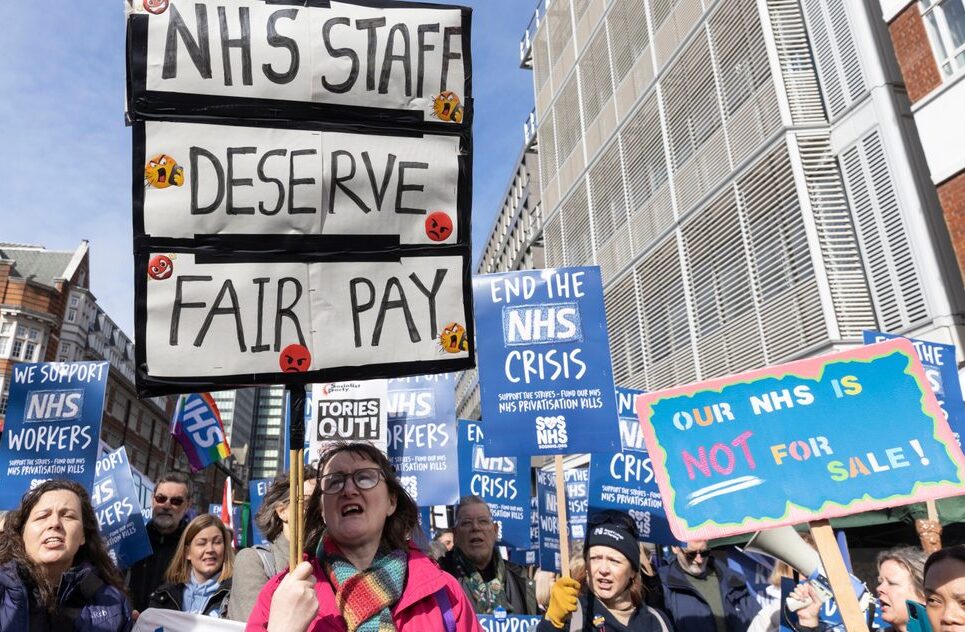
Rally in support of NHS workers, London, March 2023.
Photo: Zeynep Demir Aslim / Shutterstock.com
The British medical system has been in crisis for many months with a persistent strike of nurses who, since the COVID crisis, have been demanding a significant pay raise.
The movement is totally unprecedented in its scale and duration, since the mobilisation began just before Christmas 2022. On Sunday, April 16th, the main nurses’ union announced that it planned to continue the strike until Christmas 2023. This announcement comes after the government’s proposed 5% pay raise, accompanied by a one-off bonus of £1,250 (around €1,425), was rejected on Friday, April 14th.
According to figures released by the Royal College of Nursing (RCN), 54% of its members rejected the government’s proposal, which was deemed insufficient in view of the country’s overall inflation rate of over 10%. According to the Daily Mail, Pat Cullen, chief executive of the union, explained: “After a historic vote to strike, our members expect a historic pay award.”
The strike is getting longer and harder. The RCN has announced that the new phase of the strike, which is due to start on April 30th and last for 48 hours, will this time not spare emergency services or intensive care units. This is the last chance, the last strike that can be legally carried out, as the union’s statutes state that it is only allowed to take strike action within six months of the first vote in favour of such action. However, the union can choose to hold another vote to extend the strike.
The British health service fears, above all, a convergence of protest movements, between the nurses already mobilised and the young doctors also on strike. For the moment, the two movements are not coordinated, but there is no reason to believe that they will not join forces in the coming weeks.
The young doctors’ demands also concern salaries. They are asking for a 35% increase. Their strike has already led to the cancellation of over 196,000 hospital appointments. Surgeries and treatments have had to be postponed en masse, causing massive disruption in hospitals—on a scale the NHS has never seen before. The figure would rise to 323,026 if all the appointments cancelled due to the actions in the different branches of the health system since December 2022 are added together.
The Department of Health says the claim by the British Medical Association, which represents young practitioners, is totally unrealistic. But the concern is palpable. MP Paul Bristow, from the Commons health and social care committee, was quoted in the Daily Mail as saying: “These strikes could be causing excess deaths. They are certainly causing unnecessary suffering.” He is counting on a lack of popular support for the movement to die out quickly.
